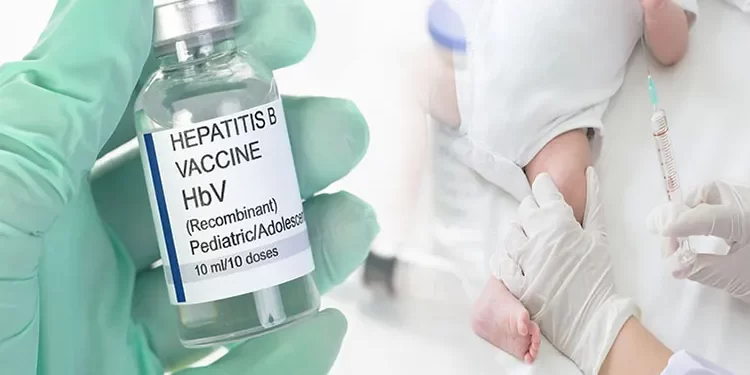The Ministry of Health is working with partners to implement a hepatitis B birth dose vaccination in health facilities to assist reduce hepatitis transmission from mother to child.
This follows the results of a study done by the Ghana Health Service (GHS) in 2023, which indicated that 8.7% of pregnant women tested positive for hepatitis B, indicating a significant risk of transmission.
Dr Kwame Amponsa-Achiano, Head of the Expanded Programme on Immunisation (EPI) at GHS, announced the effort, explaining that it was part of the GHS’s commitment to tackle the health condition, enhance public health, and reach larger health goals by 2030.
He noted that the initiative’s full potential would be realized if the vast majority of newborns were delivered in health facilities, thus he urged all expectant women to give birth at health facilities to guarantee their kids received the vaccine.
He was addressing at an event commemorating World Hepatitis Day, which was organized by the Greater Accra Region Health Service and the Ablekuma-North Municipal Assembly in conjunction with the Rotary Club of Accra Cantonments-East to raise awareness and encourage preventative measures.
The program, titled “It’s time for action,” connects with the worldwide appeal to elevate the debate on viral hepatitis and encourage collaborative action to lessen its impact on the country.
Read Also: GHS commemorates World Breastfeeding Week
Interventions
Dr. Amponsa-Achiano stated that hepatitis B and C could be avoided by education and vaccination, emphasizing that fully vaccinated persons did not require re-vaccination every ten years.
He stated that the GHS and its partners have already increased initiatives to urge individuals to be tested at licensed facilities as part of efforts to raise awareness, given the constant rise in cases.
While asking health facilities to utilize authorized kits to ensure quality findings from the tests they conduct, the GHS EPI Head advised individuals aged 20 and up to attend health facilities to be tested to determine their status and receive the necessary assistance.
Education, awareness
Dr. Amponsa-Achiano asked municipal and district assemblies to promote the battle against hepatitis by raising awareness, testing, and providing access to care in their areas.
He described the aim for hepatitis-free districts, emphasizing community awareness, accessible testing, and comprehensive care.
He also recommended against using unapproved herbal products to treat the condition, since this might have serious health consequences. The EPI GHS head recognized that the cost of getting hepatitis drugs was rather expensive, but assured that the ministry will collaborate with the Africa Medical Suppliers Platform and other partners to ease access to affordable hepatitis treatments.


























